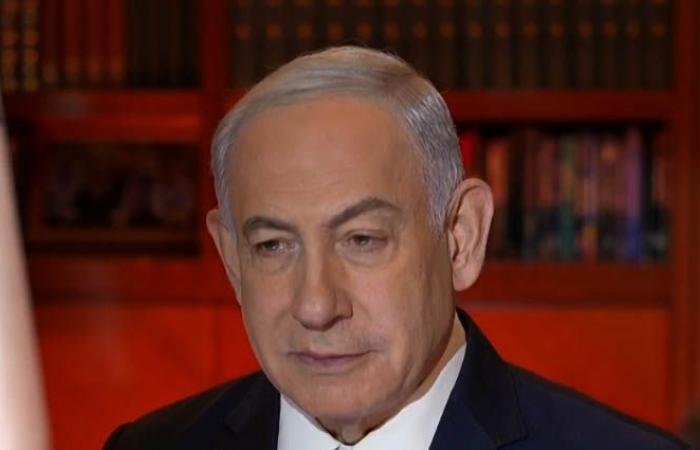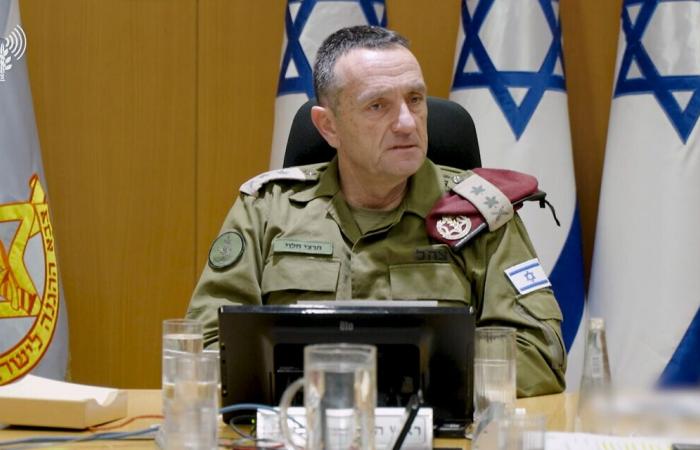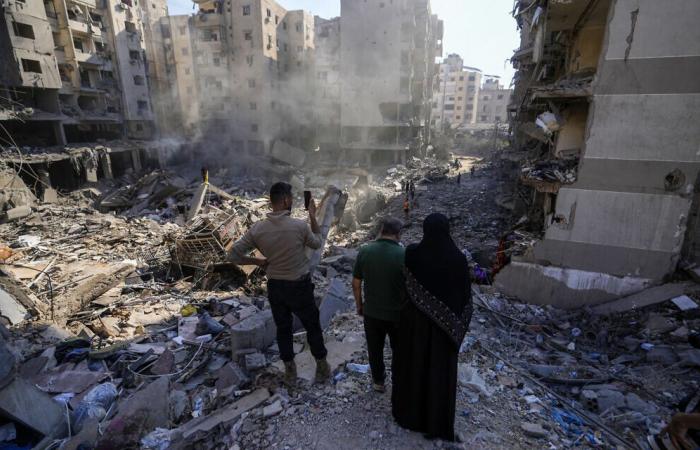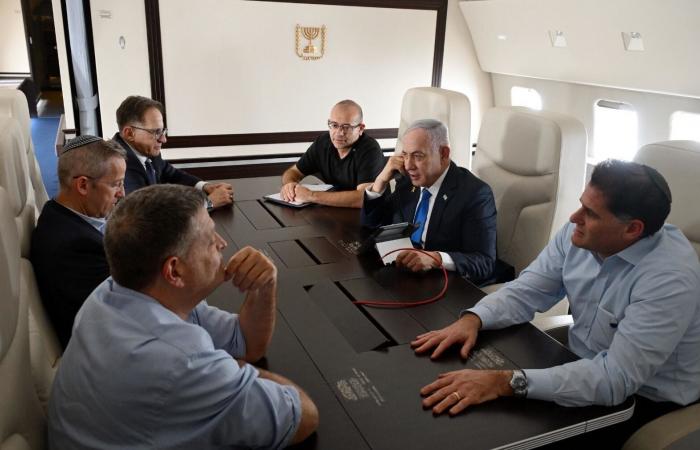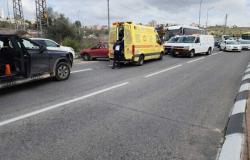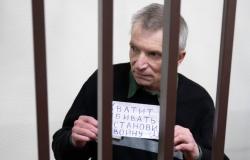In his first-ever interview since Lebanon’s ceasefire began, Prime Minister Benjamin Netanyahu said Thursday that if Hezbollah violates the agreement, there would be an “intensive war.”
The Prime Minister said he had given instructions to the Israeli army that in the event of a “serious violation of the terms of the agreement”, the response would go beyond “current surgical strikes”.
The day after the ceasefire took effect, the IDF Home Front Command lifted all restrictions on gatherings south of Haifa. The limitation on the number of people at both indoor and outdoor gatherings was imposed due to heavy rocket fire from Hezbollah.
Receive our daily edition for free by email so you don’t miss the best news. Free registration!
Restrictions remain in several locations in northern Israel and schools will remain closed in northern border towns and the Golan Heights while Israel assesses the security situation.
On Thursday, the army, for the first time since the start of the ceasefire, carried out several strikes in Lebanon against terrorists, following violations of the truce. We are talking in particular of a strike on a Hezbollah medium-range rocket production factory which had resumed activity and another against two Hezbollah agents who entered a rocket launch site listed in southern Lebanon. .
The army also claimed responsibility for warning shots on several suspects trying to enter prohibited areas.
On Thursday, IDF Chief of Staff Lt. Gen. Herzi Halevi cited the ceasefire to say the army would enforce it “with fire” to allow the return to the north of Israel of the inhabitants who were evacuated.
IDF soldiers stand in front of a house hit by rockets fired by Hezbollah from Lebanon, in the northern Israeli border town of Kiryat Shmona, November 26, 2024. (Jalaa MAREY / AFP)
“This agreement is the result of months of fighting, especially over the last three months. We won many victories in Lebanon, we did a lot of work, with strong determination, eliminated all the upper echelons [du Hezbollah]eliminated all commanders,” Halevi said during a situation update. “It is now time to move on to another stage, still with the same determination… We know from a reliable source that Hezbollah concluded this agreement because of its weakness, for lack of other solutions. »
“The people of the north are now looking towards us and they expect us to enforce what was agreed so that they can return home. We owe them this, it is our duty to them and to us,” he added.
IDF Chief of Staff Lt. Gen. Herzi Halevi during a situation briefing, in a video released by the Israeli military on November 28, 2024. (Israeli Army)
Speaking to Yaakov Bardugo for N12, Netanyahu said the ceasefire “could be brief.” He also noted that Israel “respects [le cessez-le-feu] since day one” – an allusion to the strikes.
For its part, Channel 13 reported that Netanyahu gathered his advisers on Thursday evening to discuss the different fronts of the war triggered by the Hamas massacre on October 7, 2023, in southern Israel.
Asked why Israel was not creating a buffer zone in southern Lebanon, Netanyahu assured that “the threat of a ground invasion [par le Hezbollah] is ruled out” and added that the Israeli army had destroyed the terrorist group’s air infrastructure on the border as well as its bunkers and tunnels.
He said residents of northern Israel would return “when it is safe to do so.” In stages. »
The ceasefire provides for a transitional period of 60 days, during which the Israeli army must withdraw from southern Lebanon and the Lebanese army deploy no fewer than 5,000 soldiers south of the Litani River, notably at of 33 posts located along the border with Israel. Hezbollah has no right to be south of the river, several kilometers from the border.
The United States reportedly wrote a side letter affirming Israel’s right to retaliate for any ceasefire violations.
Beyond the question of this start of a truce in Lebanon, Netanyahu was, during the same interview, asked about a possible ceasefire with Hamas in Gaza, to which he replied: “I think that the circumstances are much better. » He said he was ready to accept a pause in the war in Gaza “when we deem it possible to obtain the release of the hostages.”
“I am willing to conclude a ceasefire at any time,” he assured, while adding that he would not agree to definitively signal the end of the war, which is a cardinal demand of the Hamas. Without going into details, Netanyahu said Israel was doing “many, many things” to try to reach a deal.
Netanyahu’s opponents accuse him of not having reached an agreement to release the hostages because of pressure from his allies in the far-right coalition to prolong the war, who want Israel to reinvest Gaza and rebuild the settlements evacuated in 2005.
Netanyahu said Israel’s military operations against Hezbollah in Lebanon had the effect of isolating the Palestinian terror group in Gaza.
“Hamas hoped that Iran would come and save them. That’s not what happened. They hoped that the Houthis [basés au Yémen] would come to save them. This is not what happened,” the Prime Minister said. “But above all, they hoped that Hezbollah would come and save them, and indeed [le chef du Hezbollah assassiné Hassan] Nasrallah promised on the second day when he attacked: “We will continue until Israel stops its attacks against Hamas.” »
Now, Netanyahu said, “there is no more Hezbollah [aux côtés du Hamas] ».
Longtime Hezbollah leader Nasrallah, along with most of Hezbollah’s senior leaders, were killed in large-scale Israeli strikes in Beirut since late September, following a year of daily attacks against Israel.
The intense Israeli bombardment has also devastated the organization’s command and control structures as well as many of its long-range missiles. Analysts believe that the terrorist group has suffered heavy losses, but is not definitively defeated.
“This is the reason which leads me to think that the circumstances are much better, not only because of the separation of the fronts, but also because of the combination of operations, starting with the elimination [du chef du Hamas Yahya] Sinwar” in October.
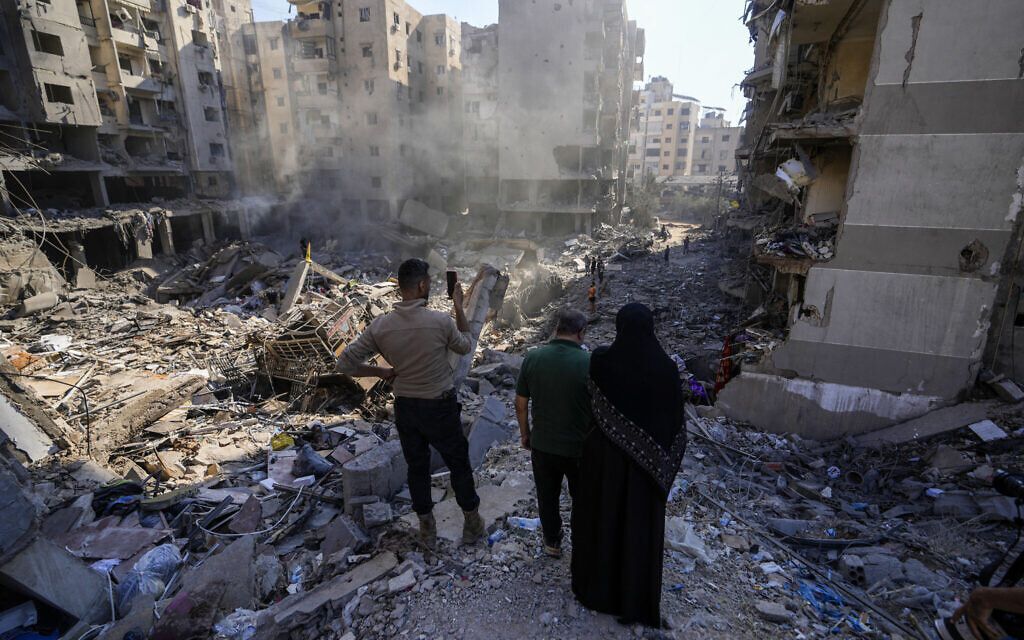
People gather at the scene of the death of Hezbollah leader Hassan Nasrallah in the southern suburbs of Beirut, Lebanon, September 29, 2024. (AP Photo/Hassan Ammar)
He also said that the circumstances in Lebanon were different from those in Gaza, and that while Israel wanted to destroy Hamas, its goals in Lebanon were much less ambitious and limited to preventing Hezbollah from posing a threat.
He added that while Israel could prevent arms smuggling into Lebanon through the bombing of border crossings and strikes in Syria, this would not be possible in Gaza as Israel would not attack Egypt. Which explains, according to him, why Israel must remain present on the border between Gaza and Egypt – another demand refused by Hamas as part of the negotiations for an agreement.
The prime minister told broadcaster N12 that he had agreed to a ceasefire in Lebanon because “we had done everything we wanted.”
During the interview, Netanyahu also discussed the decision-making process that led to the strike against Nasrallah, aiming to dispel rumors that he opposed it. He said opponents of the move had told the security cabinet that a full-fledged war with Iran could ensue and that the United States needed to be informed of the plan before it came to fruition. He assured that he was opposed to this last condition.
Netanyahu explained that he suspended the cabinet meeting: “I said that I wanted to think about this issue and that I would get back to them. Some breathed a sigh of relief, thinking that when we talked about it again, Nasrallah would be hiding elsewhere. »
In September, on a flight from Tel Aviv to New York, before his speech to the United Nations, Netanyahu said he had decided to eliminate Nasrallah.
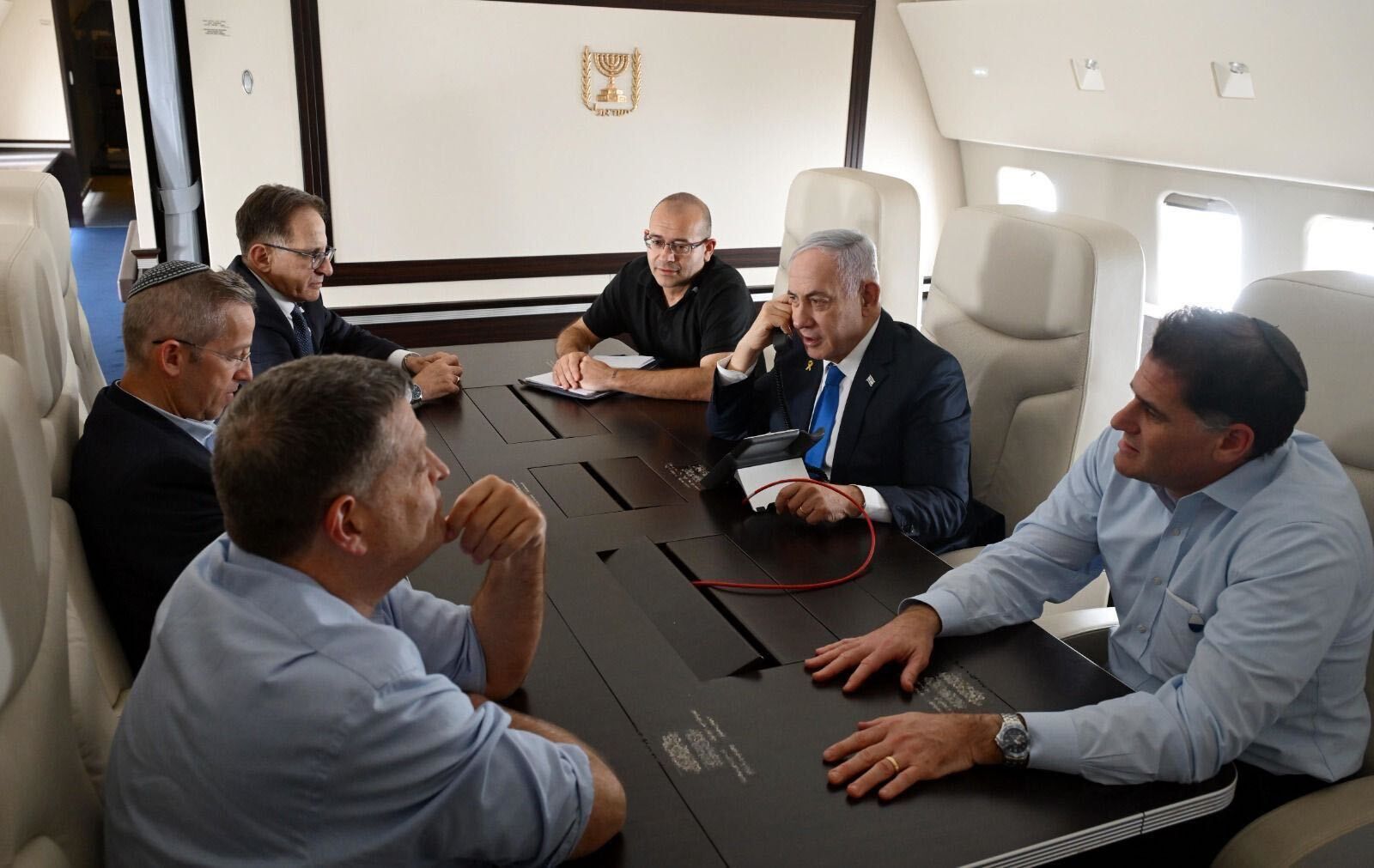
Prime Minister Benjamin Netanyahu approving a strike in Beirut from his “Wings of Zion” plane flying to New York, September 26, 2024. (Avi Ohayon/GPO)
“I boarded the Sion Wing, which has a secure communications system,” he explained, speaking of the new plane reserved for travel by the Prime Minister and the President. “I slept for two hours and then called the Minister of Defense and the Chief of Staff to tell them: ‘I have made my decision. We’re tracking him. Let’s take all the risks, it’s worth it. »
Once in New York, Netanyahu convened the security cabinet by telephone to endorse the decision. “I explained that the Americans could be informed, but once the planes [NDLT : de chasse de Tsahal] were already in flight. »
Netanyahu denied that his trip to the UN was intended to trick Nasrallah into letting down his guard.
He also said he was ready to do “anything” to prevent Iran from acquiring nuclear weapons. “I will use whatever means necessary,” he concluded.
Emanuel Fabian contributed to this article.

